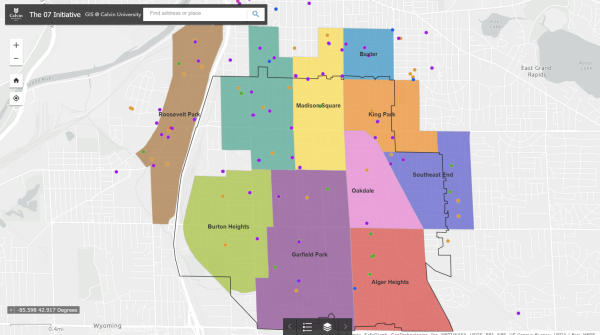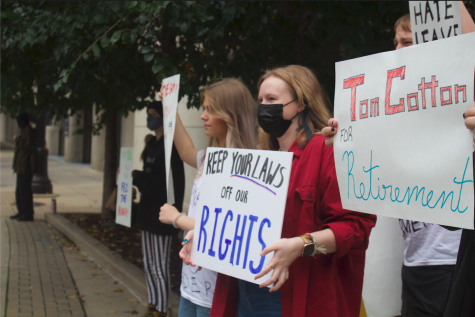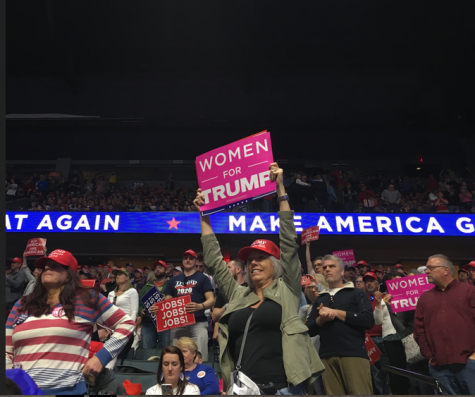Community learns how to create a people-first economy in GR
Deborah Frieze and Aaron Tanaka from the Boston Impact Initiative and The Boston Ujima Project presented “Building a People-First Economy” this past Monday, Oct. 30. The event was at the Link Gallery, hosted by Johnson Center for Philanthropy and Local First West Michigan. About 50 people attended the event.
The event focused on explaining what The Boston Ujima Project is, then also included a workshop highlighting how to create a healthy economy that focuses on the local community. Frieze is a co-founder of the Boston Impact Initiative as well as an author, entrepreneur and social activist. Tanaka is an investment committee and board member of the Boston Impact Initiative as well as a community organizer, grant maker and impact investor.
“We’re interested in building an alternative to create ownership opportunities throughout the community,” said Tanaka.
Tanaka and Frieze argued that it’s extremely difficult for minorities and marginalized groups to start their own business. This is because historically marginalized groups have limited access to capital as well as difficulty building social capital. Tanaka and Frieze believe that in order to change this, the whole system needs to change so that underrepresented minorities are able to be entrepreneurs in their own communities.
“The power is in the people,” said Tanaka, “and the people fall into several different groups. But we believe that if we unite them we can help solve each others’ challenges.”
Tanaka described these groups as falling into six categories: businesses, grassroots, communities, investors, technical support and anchor institutions (such as universities and hospitals). These six categories create a financial ecosystem, she said, where the success of one helps the success of the others.
To begin the simulation, Tanaka and Frieze split the attendees into one of the six groups they most identified with. Then, each group brainstormed services of the community that are not being fulfilled as well as businesses that they like in the Grand Rapids community that are fulfilling specific needs. Some of the businesses that groups liked best in Grand Rapids were Ferris Coffee, Daddy Pete’s Barbecue, Schuler Books, Meijer, Brewery Vivant and the Malamiah Juice Bar. Some of these needed services that groups brainstormed were affordable housing, mass-transit, senior citizen center, community gym facilities and affordable, healthy grocery stores.
After brainstorming, groups then voted on a need to focus on. For the sake of the simulation, the attendees chose affordable grocery stores.
After that, the simulation moved onto the step of creating community standards for the business they wanted. Some of the community standards that the stimulation yielded were a living wage, benefits, diversity, hiring local and consciousness of the environment.
The final step of the stimulation was to find a community funded business that would be willing to adhere to these company principles and needs.
This simulation followed the process that the Boston Ujima Project goes through to create a people-first economy: First, the community raises money. Second, the community brainstorms needs and votes on which needs to prioritize. Third, the community creates standards to hold the needed business to. At the Boston Ujima Project, each person’s vote counts equally, no matter if they invested $20 or $2,000 in funding.
“I think that there’s a desire from our community input into how neighborhoods grow,” community member and attendee Janet Wylie commented.
The name “ujima” comes from an African word that means “collective responsibility”. This move towards collective responsibility is what the Boston Ujima Project is aiming to achieve in Boston and what they hope can catch on in Grand Rapids as well.
To learn more about the Boston Ujima Project, go to ujimaboston.com.







